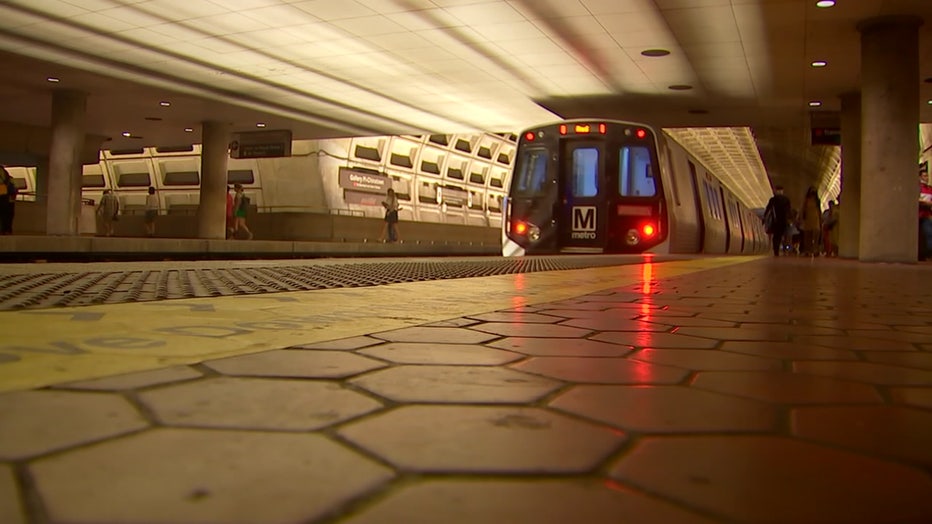Metro’s plan to fix 7000-series wheels, return fleet to service could take 3 years, cost $55M
WASHINGTON - Metro's plan to fix the way it presses wheels onto their 7000-series rail cars could take as long as three years to complete and cost approximately $55 million, the transit agency said Tuesday.
Metro says the engineering firm Hatch-LTK identified a microslip issue that was due to a decrease in contact pressure and says an increase to the fit and press tonnage used to mount the rail wheels onto the axles is necessary for the 7000-series trains.
Preliminarily, Metro estimates it will take up to 36 months at a cost approximately $55 million to repress all the 7000-series wheels.
According to data released by the National Transportation Safety Board, the plan is currently under development.
"We appreciate the NTSB making the technical reports available so that we can develop our plan to begin repressing wheels on these trains at a higher standard, including the fit onto the axles," said Chief Operations Officer Brian Dwyer in a statement released by Metro. "We are preparing the technical documents and training plan, while we collaboratively advance the next version of our return to service plan for approval by the Washington Metrorail Safety Commission."

Metro
Dwyer says the process will require changing all 5,984 wheels on 2,992 axles for 748 railcars. "We thank our customers for their patience and want them to know that the good news is we will be able to fix about 20 cars a month to safely build up more trains and restore the safe, frequent and reliable service the region needs," he said.
The latest phase of Metro's attempt to return the 7000-series trains to service began in January. The current phase measures the wheels every seven days, and will remain in effect until the transit agency receives concurrence from the Washington Metrorail Safety Commission on the revised plan, officials say.
Metro says it will continue its inspections of wheels with measurements for every 7000-series rail car until the fix is complete.
"Process changes must be safe and deliberate," said Chief of Safety and Readiness Theresa Impastato in a statement. "We will take the time needed to get this right because every single rail car must undergo a rigorous process to be ready to serve our customers and support our employees."
Metro has been working to get more 7000-series trains back on the tracks following a derailment in 2021 .

